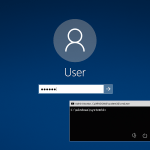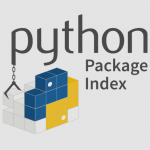Using Cloudflare’s 1.1.1.1, other DNS services still requires some command-line know-how.
The death of network neutrality and the loosening of regulations on how Internet providers handle customers’ network traffic have raised many concerns over privacy. Internet providers (and others watching traffic as it passes over the Internet) have long had a tool that allows them to monitor individuals’ Internet habits with ease: their Domain Name System (DNS) servers. And if they haven’t been cashing in on that data already (or using it to change how you see the Internet), they likely soon will.
DNS services are the phone books of the Internet, providing the actual Internet Protocol (IP) network address associated with websites’ and other Internet services’ host and domain names. They turn arstechnica.com into 50.31.169.131, for example. Your Internet provider offers up DNS as part of your service, but your provider could also log your DNS traffic—in essence, recording your entire browsing history.

Working as a cyber security solutions architect, Alisa focuses on application and network security. Before joining us she held a cyber security researcher positions within a variety of cyber security start-ups. She also experience in different industry domains like finance, healthcare and consumer products.






























